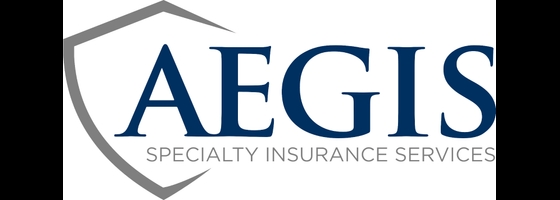- CFAR reimburses 75% of non-refundable expenses.
- Company offers annual and single-trip plans.
Best CFAR Travel Insurance in 2024

Our evaluations and opinions are not influenced by our advertising relationships, but we may earn a commission from our partners’ links. This content is created by TIME Stamped, under TIME’s direction and produced in accordance with TIME’s editorial guidelines and overseen by TIME’s editorial staff. Learn more about it.
For many of us, the pandemic reinforced the value of being as flexible as possible with our plans. That includes travel, where all kinds of incidents can throw a curveball at our itineraries.
To get the maximum flexibility in a travel insurance policy, consider a plan with cancel-for-any-reason (CFAR) coverage. A standard travel insurance plan covers cancellations only for specified circumstances outlined in the policy contract. But a plan with CFAR ensures you’ll be covered for any reason at all. Even if you simply change your mind and decide not to travel, you can file a claim with your insurer and receive at least some reimbursement for your prepaid, non-refundable travel costs.
CFAR can be an expensive option. You should explore plans carefully and choose one that offers the best combination of coverage at a cost that works for your budget. Here is our review of the best CFAR travel insurance plans for 2024.
| Company | Plan name | Best for | Cost with CFAR | Cost without CFAR | CFAR reimbursement | Other coverage highlights |
|---|---|---|---|---|---|---|
Aegis | Go Ready Choice | Pre-existing conditions | $435 | $290 | 75% of trip cost (max $10,000 per traveler) | CFAR is packaged with pre-existing conditions waiver |
Preferred | Rental car coverage | $419 | $342 | 50% of trip cost | Optional “Wedding Bundle” coverage applies if wedding is canceled | |
Berkshire Hathaway | LuxuryCare | Luggage coverage | $858 | $400 | 50% of trip cost (max $10,000 per traveler) | $2,500 coverage for lost luggage |
Premium | Medical coverage | $710 | $473 | 60% of trip cost | $250,000 medical coverage; Includes telemedicine services | |
Bronze | Low-cost option | $396 | $264 | 75% of trip cost | Optional rental car coverage available | |
Trip Protection Basic | Best overall for CFAR | $352 | $248 | 75% of trip cost | Interruption for any reason (IFAR) coverage also available | |
Tin Leg | Gold | Active travelers | $746 | $308 | 75% of trip cost (max $20,000 per traveler) | Package includes coverage for loss of sports equipment, loss of sports fees, and adventure sports coverage |
Travel Select | Traveling with children | $736 | $370 | 75% of trip cost (max $10,000 per traveler) | Plan covers children under age 17 at no additional cost |
Aegis’s Pandemic Plus plan can be purchased with a CFAR coverage option. The CFAR option provides 75% reimbursement of up to $10,000 of non-refundable travel expenses. The plan also includes a pre-existing benefits waiver, providing coverage for medical emergencies related to chronic conditions.
CFAR coverage is available with the AIG Travel Guard Preferred plan. However, it reimburses only up to 50% of non-refundable travel expenses, which is the lowest percentage of the companies included in our review. From a cost perspective, the Preferred plan comes in around the middle.
Travel Guard does offer a generous $50,000 of optional rental car coverage. We quoted this option at $83 for one week of travel.
Berkshire Hathaway’s LuxuryCare plan offers CFAR with 50% reimbursement of non-refundable expenses. That’s among the lowest benefits in our review. And the plan is an expensive one, at $858 including the CFAR option.
But while the CFAR option isn’t among the best out there, you do enjoy a very generous $2,500 of coverage for lost luggage. That should help replace clothing and other personal items so you can continue your travels comfortably.
The Generali Premium plan offers CFAR coverage as an option. The coverage provides reimbursement of up to 60% of non-refundable travel expenses. Where the plan really shines, however, is its medical coverage limits. The company provides $250,000 coverage for emergency expenses and $1 million for emergency transportation. Generali customers can also access 24/7 telemedicine services, providing virtual visits for non-emergency medical needs with a licensed U.S. physician.
The John Hancock Bronze plan offers a CFAR option at relatively low cost. But surprisingly, the level of coverage compares well with any of the plans in our review. The plan reimburses up to 75% of non-refundable travel costs. As a low-cost option, the John Hancock Bronze plan offers only $50,000 of medical coverage and $750 for lost luggage. However, higher coverage amounts are available with the company’s more expensive travel insurance plans.
The Seven Corners Trip Protection Basic plan is our pick for the best overall CFAR coverage. Seven Corners reimburses up to 75% of non-refundable travel costs. The plan also offers an impressive $100,000 of medical costs, and an option for interruption for any reason (IFAR) coverage for just an additional $11 in our quote. And note that all of this is available with the company’s lowest-cost plan.
CFAR coverage is an expensive option from Tin Leg. It is a $438 add-on, according to our quote, to the company’s Gold level travel insurance plan. For the money, however, you get reimbursement of 75% of your travel expenses up to $20,000. That’s the highest maximum limit in our review. We also like Tin Leg’s features for physically active travelers. These include coverage for equipment (bikes, skis, etc.), sports fees (such as race entry fees), and adventure sports.
Small children add complexity to any travel itinerary. If you’re considering CFAR coverage for such a trip, check out Travelex. Its Select plan provides CFAR with 75% reimbursement of non-refundable expenses and a $10,000 limit. Travelex also covers children under age 17 on an adult’s plan at no additional cost.
We reviewed plans that include a CFAR option from several leading travel insurance companies. Our research included quotes for two travelers, age 52, traveling to the United Kingdom for seven days in May 2024, at a total trip cost of $6,000. Our review shows each company’s lowest-cost plan that includes a CFAR option. We noted CFAR coverage levels, including the percentage of reimbursement of non-refundable travel expenses.
We also looked at other essential travel coverages offered by these companies. These included emergency medical expenses and useful options such as rental car coverage. Based on this information, we declared a “best of” for several categories.
CFAR coverage supplements the standard trip interruption coverage on a travel insurance policy. Most standard travel insurance plans include trip cancellation coverage. This coverage is designed to reimburse your non-refundable, pre-paid trip costs if you have to cancel your trip prior to departure.
Typically, trip cancellation coverage applies only in specific situations. These situations are listed in the policy contract and include things such as an injury, illness, natural disaster, extreme weather conditions, or bankruptcy of a travel service provider. Provided you cancel due to one of the situations outlined in the policy, you can file a trip interruption claim and expect to receive reimbursement. If the situation that causes you to cancel isn’t on that list, however, it’s unlikely your insurance company will pay.
If your policy also includes CFAR coverage, you’ll be reimbursed for any possible reason, whether or not it’s listed in the contract. If, for instance, COVID-19 flares up at your destination and you decide to cancel your trip, you can be reimbursed. If your daughter’s basketball team unexpectedly makes the state finals and you want to cancel your vacation to watch her play, you can be reimbursed. If you just change your mind about the trip, you can be reimbursed.
Note that whereas standard trip interruption coverage usually reimburses 100% of your non-refundable costs, CFAR may reimburse only 50% to 75% of costs.
Here are some tips to get the best CFAR coverage:
CFAR is available from many leading travel insurance companies as an optional coverage with their standard plans. Some companies might require you to buy a more expensive base plan to qualify for a CFAR option. Shop around to make sure you’re not paying for coverage you don’t really need.
When comparing CFAR options available from various travel insurance companies, you’ll first want to make note of the cost. CFAR is typically an expensive add-on, but the cost does vary depending on what company you choose. In our review, the cheapest CFAR option cost $77. The most expensive one costs $458.
The lesson here? Shop around. Services such as Squaremouth and travelinsurance.com allow you to compare costs from multiple travel insurance companies.
You’ll also want to consider the level of coverage provided. Typically, CFAR provides reimbursement for a percentage of your total non-refundable travel costs. In our review, these percentages ranged from 50% to 75% depending on the company. This can affect any claim payout by thousands of dollars.
CFAR coverage ensures your travel insurance policy reimburses you no matter why you decide to cancel—even if you do so for a reason not listed in your policy contract. However, it can be an expensive optional coverage, and payout percentages vary by insurance company. Consider your CFAR options carefully to make sure you get the coverage you need at a price that works for your travel budget.
CFAR coverage provides the maximum flexibility. But it comes at a price—according to our review, the most expensive CFAR option more than doubled the cost of the base insurance plan. So it’s natural to wonder if it’s really worth it. Consider how certain you are of your travel plans. Is it likely that something might crop up that will cause you to need to cancel? Consider also the refund policies for any prepaid fees, including airfare, hotel reservations, and entertainment. If these costs are non-refundable, CFAR might be a good idea.
There are a few scenarios related to COVID-19 that might affect your travel insurance:
In this case, standard trip interruption coverages will apply. You can file a claim and expect your insurer to reimburse your costs.
Some plans include coverage to help pay for your additional lodging expenses related to a quarantine. Standard trip cancellation and trip interruption coverage may apply if you need to cut your trip short.
Also, if the COVID-19 infection rate spikes at your destination just prior to your departure date, and you decide to cancel your trip, most travel plans we’ve reviewed would not cover this scenario under their standard trip interruption coverage. You’d need a policy with optional CFAR coverage to be reimbursed.
Travel insurance plans vary. Check your plan carefully to understand what it does and doesn’t cover.
Yes. Cancel-for-any-reason coverage applies to any reason, not just the ones outlined in your policy contract. Even if you simply change your mind and decide not to travel, your coverage should provide at least partial reimbursement of your non-refundable travel costs.
If your reason for cancellation is among those listed in your policy contract, you can file a claim with your insurer and expect reimbursement under your policy’s standard trip cancellation coverage. However, if the reason falls outside of those listed, you’re not likely to be reimbursed.
The information presented here is created by TIME Stamped and overseen by TIME editorial staff. To learn more, see our About Us page.











